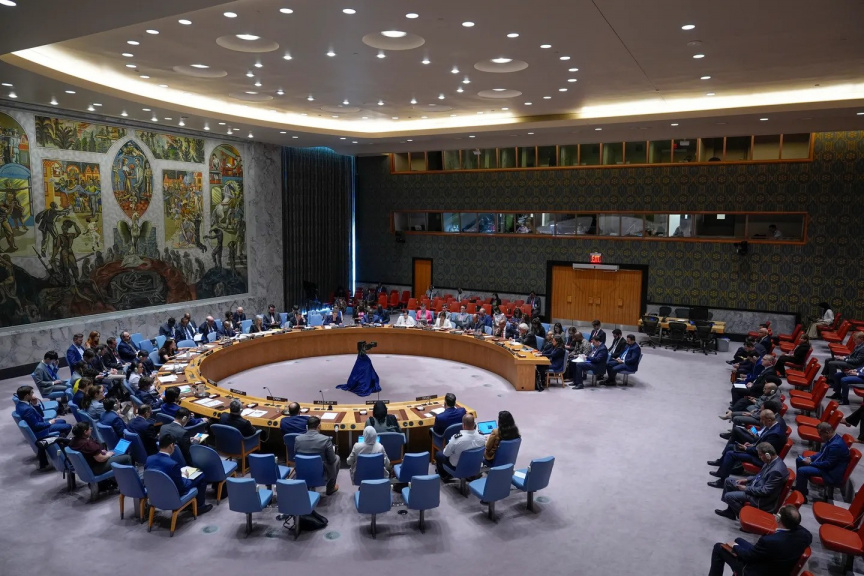
The US proposal to secure a United Nations mandate for an international stabilisation force [or ISF] in Gaza has faced resistance from Russia, China and several Arab countries. (Photo/Via TRT)
The US proposal to secure a United Nations mandate for an international stabilisation force [or ISF] in Gaza has faced resistance from Russia, China and several Arab countries, who have raised concerns over the structure of the post-genocide governing mechanism and the absence of any transitional role for the Palestinian Authority.
According to four UN diplomats briefed on the discussions, Moscow and Beijing — both permanent, veto-wielding Security Council members — have demanded that the proposed "Board of Peace" under President Donald Trump’s ceasefire plan be removed entirely from the draft resolution.
In the revised text circulated late on Wednesday, the US kept the language on the board but added references to Palestine’s self-determination, attempting to respond to criticism that the earlier draft lacked a political horizon.
While diplomats said the negotiations reflect a typical back-and-forth over wording, the objections underline significant differences between Washington and some members of the UN’s most powerful body after more than two years of genocide.
US Secretary of State Marco Rubio said the resolution must pass "right away," stressing that momentum should not be lost.
"I think we’re making good progress," he told reporters before leaving a G7 meeting in Canada.
Security Council pushes amendments
The initial US draft, circulated last week, called for a broad mandate allowing an international force to operate in Gaza through 2027 alongside the yet-to-be-established Board of Peace.
Arab countries that have shown interest in contributing troops say such authorisation is essential.
Russia, China and Algeria rejected the draft, and all but two Security Council members submitted amendments.
Key points that cause reactions are the absence of a clear pathway to Palestine’s statehood and uncertainty over when Israeli forces would withdraw from Gaza.
The updated draft says that once reforms to the Palestinian Authority are "faithfully carried out" and reconstruction advances, conditions "may be in place for a credible pathway to Palestinian self-determination and statehood."
It also says Israeli forces will withdraw as the stabilisation force "establishes control and stability," based on agreed "standards, milestones and timeframes."
Some members have asked the US to clarify who would sit on the Board of Peace and how it would function.
The UAE, a key US partner, said it does not currently see a clear framework for the stabilisation force and is unlikely to participate under present conditions.
Diplomats said some countries want swift adoption to maintain progress on the ground, while others warn the US may pursue a "coalition of the willing" outside the UN if negotiations stall.
___
Source: TRT